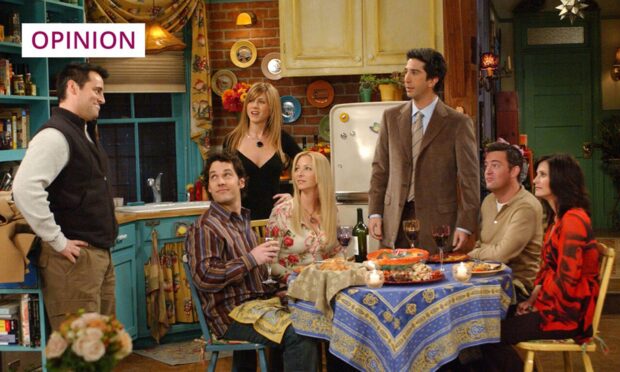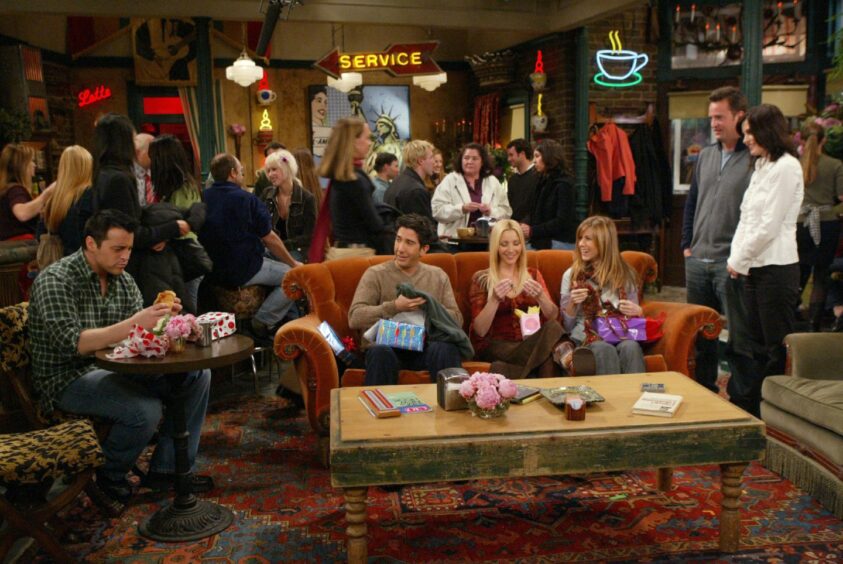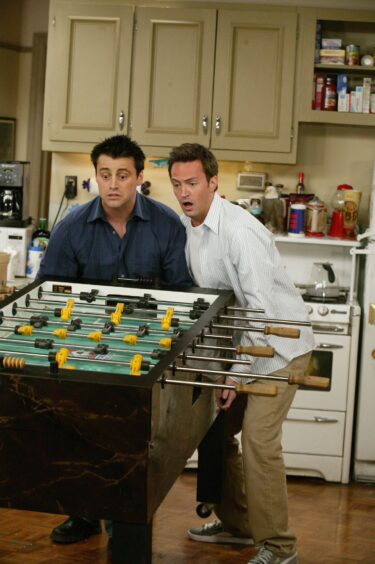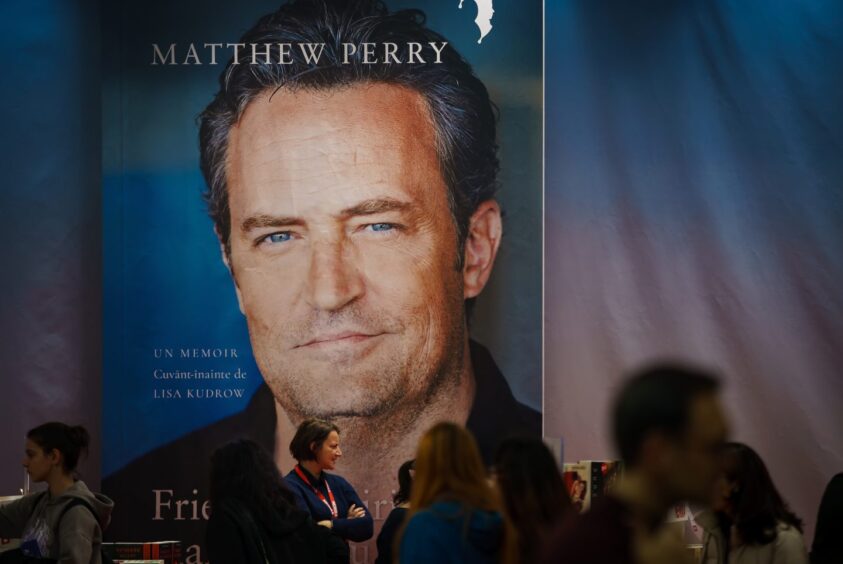There was a game my friends and I used to play in our early 20s, which I suspect wasn’t an uncommon one at the time – which Friends character are you?
I always fancied myself as Chandler Bing: a withering wisecracker, bitingly sarcastic and extremely funny, dressed in the coolest suits, and of course dashingly handsome.
But no. To my pals I was Joey Tribbiani. I’d like to say this was because I shared his effortless success with girls, but suspect it was more down to my ability to stumble through life with a kind of dumb charm and guileless plausibility.
Thirty years later, I find I can’t make much of an argument against their judgement.
The death at the weekend of Matthew Perry, the actor who played Chandler, has hit us all pretty hard.
Friends was the cultural phenomenon at an age where we had the time to watch lots of TV, and were in the process of shaping our adult personalities. We were the Friends generation.
Its characters and their lifestyles were brightly-lit, aspirational, exaggerated versions of ours.
Being Scottish, they had a coffee shop where we had a pub
The girls wanted to be Rachel and the boys wanted to find a Rachel. There was always an overly serious and controlling Monica in the group. The geek was always Ross, the floating, mystical one always Phoebe. They had a coffee shop, we – being Scottish – had a pub.
The Friends cast had better apartments, better looks and better hair, but there was plenty in their relationships to which we could relate.
The endless lounging and chatting, the dating failures and occasional preposterous successes, the mutual support, the sense of time suspended – of no longer being a child but also not quite an adult yet.
And the laughter. I miss the laughter most, the languorous, chortling ease that filled daily life before things inevitably became more serious, before mortgages, children and the fixed career path. We took nothing very seriously, which is, at that tender age, how it should be.
We all watched Friends all the time. Turn on the TV today and it’s still quite hard to avoid.
Looking back, the show had its flaws. It was weirdly white, especially given it was set in New York, and some of the humour pre-dates today’s sensitivities. But the writing was extraordinary, and the performances approached perfection.
It was always Chandler who stood out: he had the best lines, the sharpest comic timing, huge warmth and depth that would occasionally peep out from beneath that defensive, deflective exterior.
It’s probably an overstatement to say that Chandler was the most impactful cultural figure of the mid to late 90s, but it can’t be much of one.
Friends feels like the last fully shared viewing experience before television fragmented into box sets and endless digital channels and then Netflix and Amazon Prime. It was appointment viewing, which always richly rewarded the attendee.
The Friends characters changed the way we spoke to one another, and none more so than Chandler.
Matthew Perry’s patter is as funny now even as it was then
The trademark sarcasm, often involving a play on “could you BE any more…” entered the daily lexicon.
It was only later I learned that Perry brought this famous phrase to Friends, rather than vice versa. We constantly repeated and adapted his best quips, and his patter is as funny now as it was then – as a visit to the many internet tributes that have sprung up in recent days will confirm.
Away from the screen, Perry had his demons.
I didn’t really notice at the time how his weight would fluctuate wildly from series to series as he battled an addiction to alcohol and opiates.
Only in the final programmes, when his speech had obviously thickened, as if his tongue had become too big for his mouth, did it become obvious that something was wrong.
The full extent of his pain was revealed with the release last year of an autobiography, Friends, Lovers and the Big Terrible Thing.
Perry seems to have been the classic troubled funnyman.
He calculated that he had attended something like 6,000 AA meetings, detoxed 65 times, and spent about $7 million in his efforts to sober up.
He spent 14 days in a coma after being rushed to hospital screaming in agony, due to a ruptured bowel.
The book is a difficult read – how he pursued fame in an attempt to crowd out the issues that had him drinking from the age of 14, how he had a relationship Julia Roberts but dumped her for fear she would dump him. The highs were high, but always undermined by the looming lows.
Even towards the end, he spoke of his seemingly unconquerable loneliness, “sitting in a huge house, overlooking the ocean, with no one to share it with, save a sober companion, a nurse, and a gardener twice a week”.
We are all to a degree the authors of our own misfortunes, but it’s impossible not to ache for Perry.
In the past few years, my children discovered Friends, and we sat through the whole lot together again: Ross and Rachel, Joey and every passing woman, Phoebe and Smelly Cat, and a million other glories.
And always, always, the funniest, sharpest line belonged to Chandler Bing.
My daughters love him. I’ll choose to remember Matthew Perry, with gratitude, that way.
Chris Deerin is a leading journalist and commentator who heads independent, non-party think tank, Reform Scotland




Conversation